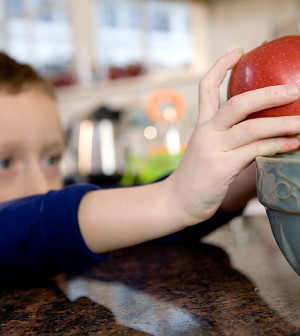- The Best Time of Day to Drink Bone Broth to Maximize Health Benefits
- 8 Ways to Increase Dopamine Naturally
- 7 Best Breads for Maintaining Stable Blood Sugar
- Gelatin vs. Collagen: Which is Best for Skin, Nails, and Joints?
- The Long-Term Effects of Daily Turmeric Supplements on Liver Health
- Could Your Grocery Store Meat Be Causing Recurring UTIs?
- Are You Making This Expensive Thermostat Error This Winter?
- Recognizing the Signs of Hypothyroidism
- 10 Strategies to Overcome Insomnia
- Could Artificial Sweeteners Be Aging the Brain Faster?
Money Doesn’t Buy ‘Tweeners’ Self-Esteem


Children who struggle with low self-esteem sometimes believe that they can buy their way out of feeling bad by acquiring “cool” things and striving to look good, experts say.
But new research finds the opposite may be true, with materialistic behavior actually aggravating already-existing depressive tendencies.
“Consumer culture may be perceived as a coping mechanism by vulnerable children, but it is one that is detrimental to their well-being,” study author Matthew Easterbrook, a psychology professor at the University of Sussex in England, said in a university news release.
Easterbrook and his colleagues are scheduled to present their findings Friday at a meeting of the British Psychological Society in Manchester, England. Research presented at meetings should be viewed as preliminary until published in a peer-reviewed journal.
The findings are based on the behavior patterns among 1,000 British children aged 8 to 14. All of the kids were followed for three years.
The research team determined that a child who already has a low sense of well-being gravitates toward consumerist behavior.
But, in the end, a materialistic response to social problems appeared to backfire, with childhood friendships worsening rather than getting better, the findings showed.
That said, investigators did observe some differences in the way boys and girls handled their initial depressive symptoms. While boys reacted to a poor sense of well-being by increasing their spending, girls were more likely to develop a less obvious “internalized” distress concerning their overall appearance, the findings showed.
More information
There’s more on children and mental health at the U.S. National Institute of Mental Health.
Source: HealthDay
Copyright © 2026 HealthDay. All rights reserved.










